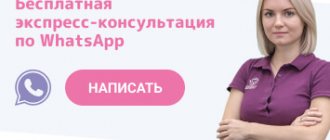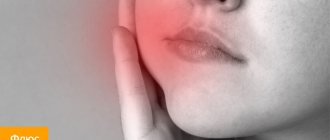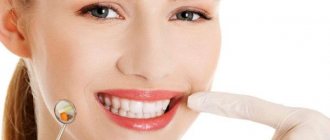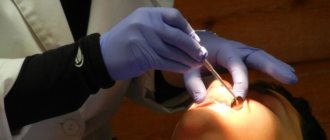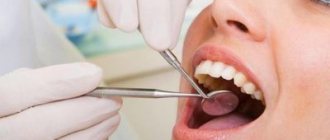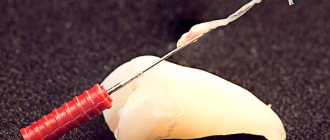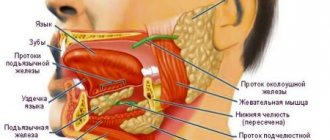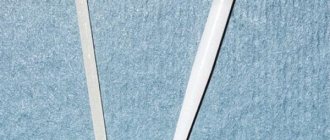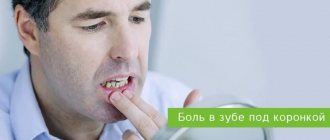What to give a child with a fever?
Monday, January 10
6033
4.3
1
Content
- What temperature is considered elevated in a child?
- What medications should not be given to a child with fever?
- How can you lower your child's temperature?
- Which antipyretic to choose for a child
- Top 8 best antipyretics for children
- Paracetamol
- Calpol
- Panadol
- Efferalgan
- Tsefekon-D
- Ibuprofen
- Ibufen
- Nurofen
- What not to do if a child has a high temperature
When a child is sick and his temperature rises, the body experiences excessive stress. Pediatricians advise lowering the temperature if it exceeds 38-38.5 degrees. Antipyretics have been developed especially for children and should definitely be in your home medicine cabinet. When choosing such drugs, it is necessary to take into account not only the age of the child, but also the active ingredient of the fever remedy.
What medications should not be given to a child with fever?
Children with elevated temperatures should not be given the following medications:
- "Analgin" (metamizole sodium). In civilized countries, “Analgtn” is prohibited because it negatively affects hematopoiesis and is highly toxic. In post-Soviet countries it is used, for example, as emergency aid as a component of the “lytic mixture”. "Analgin" can be administered once only if other antipyretic drugs are not available. Continuous use of this drug is unacceptable for both adults and children.
- "Aspirin" (acetylsalicylic acid). It is prohibited to use this drug for viral diseases before the age of 12 - the child has a high risk of developing Reye's syndrome (toxic encephalopathy with liver damage).
- "Nimesulide" ("Nise", "Nimulid"). Preparations with such an active substance are prohibited in children under 12 years of age, since there is a high risk of developing toxic hepatitis (severe liver damage).
How to calm your baby
Many young mothers worry about what to do and how to alleviate the condition when the child is teething, because he screams loudly and cannot sleep or eat normally. The best way to help a newborn is to breastfeed frequently. During the sucking process, the baby calms down, feeling maternal protection and love.
Parents may notice that regurgitation has become a common occurrence at this time. This feature is associated with abundant salivation and is quite natural. It is important not to confuse the periodic passage of air and food with vomiting, which is dangerous to life and health due to the high risk of dehydration.
How can you lower your child's temperature?
Pediatricians recommend reducing the temperature of children with paracetamol or ibuprofen. It is also important that the dosage of the drug is calculated based on the baby’s weight (there is always a special measuring spoon or syringe in the box with syrup). Ordinary teaspoons are not used in such cases, just like the “by eye” method. You can buy an antipyretic for a child in the form of syrup or suppositories if the baby cannot yet take a pill.
How to reduce a child's temperature
What is prohibited?
- To prevent accidental washing of a blood clot from the socket, it is forbidden to rinse your mouth. To treat the cavity, oral baths are quite sufficient;
- Hot compresses are prohibited, this stimulates severe swelling, the development of inflammation, and bleeding;
- You cannot puff out your cheeks, blow your nose too much, or sneeze;
- It is forbidden to touch the wound with your fingers, tongue, or objects;
- You can’t eat hot, cold, irritating foods; preference is for soft, warm, neutral foods;
- you cannot smoke or drink alcohol for at least a week - tobacco and alcohol slow down tissue regeneration;
- Hypothermia and overheating must be avoided - going to the sauna, swimming pool, solarium is prohibited for 5-7 days;
- Do not take aspirin or other blood thinners;
- do not engage in active sports, do not subject the body to excessive physical or sports stress.
Which antipyretic to choose for a child
The ideal form of the drug for fever for infants is rectal suppositories.
The drug is absorbed in the large intestine and begins to work within half an hour after administration. Candles are very convenient when you need to bring down the temperature, but the child is spitting up or vomiting.
Syrup (or suspension)
It is usually given to children from 1 year of age, although it can be used earlier. This form of antipyretic begins to act quickly and is suitable even if the temperature rises rapidly. When purchasing a syrup or suspension for fever, be sure to read the composition of the drug: it may contain different dyes and flavors, which sometimes cause allergies.
Tablets for fever
can be given only to those children who know how to swallow them (usually at an older age).
Read also: The most effective antipyretics for adults 8 most effective drugs for high fever
Stages of socket healing
- 2-3 hours
after
a blood clot (thrombus) forms
in the socket . It serves as a barrier to pathogenic microorganisms, preventing them from entering the wound. - The next 2-3 days
- the blood clot thickens, shrinks, the wound
becomes covered with a whitish coating
(fibrin film), the formation of granulation tissue begins inside the hole, the basis for the restoration of mucous membranes. - After 3-7 days
, the thrombus lightens, becomes whitish, the connective tissue has practically filled the hole, swelling and pain are minimal or completely absent. - After 7-10 days
, the hole has shrunk significantly,
new bone begins to form
, which will completely fill the defect after 4-6 months. - After 2 weeks
,
the gums have completely healed
.
Top 8 best antipyretics for children
We have compiled a list of the safest and most effective fever medications for children, recommended by pediatricians. In addition, these products have earned positive reviews from mothers on forums.
Antipyretics based on paracetamol
These are the most effective drugs that are suitable for children from 1 month. They quickly reduce body temperature and relieve pain. Paracetamol-based products help with acute respiratory viral infections, various inflammations and teething in babies. Contraindications to taking paracetamol include viral hepatitis, liver and kidney diseases, and diabetes. Possible side effects include nausea, vomiting, skin rash, and refusal to eat.
Patient's fears
The reason for a person’s patience and postponing the procedure for later is stories from acquaintances and friends about pain and frightening reviews on social networks and forums.
When pain occurs as described by those being treated:
- during surgery - common when a tooth is removed from the lower row and is associated with the structure of the jaw. The dental surgeon needs to use a thin needle of a syringe with an anesthetic to hit the jaw nerve located in the gum; therefore, when the doctor is inexperienced or in a hurry, he does not hit this point, and therefore does not freeze; Also, the reason for the lack of pain relief may be diffuse inflammation, which also reduces the effect of freezing.
- after the procedure - is associated with interference in the body, especially typical for complex removal, which is associated with strong interference in the tissue, and can also cause the development of inflammation of the socket after the removal of a wisdom tooth.
While taking it, listen carefully to your feelings. If you don't feel enough numbness in your tongue and gums, ask for an extra shot to avoid a traumatic experience.
Important! Find out in advance what type of anesthetics are used in the clinic. Paid institutions use derivatives of articaine. Lidocaine has proven to be less effective in these cases.
For competent removal of wisdom teeth without pain, the manual skill and experience of the doctor is important. Correct use of anesthesia will avoid pain, and following the doctor’s recommendations after surgery will protect you from inflammation and swelling.
Aware means armed
Even if you consult an experienced doctor and follow all the advice, side effects may occur in the first days or weeks of removal.
Swelling after wisdom tooth removal is associated with inflammation of the place where the tooth was recently located. If there is bad breath, pain when cold or hot gets on the wound, and there is no special clot that protects against food, then infection is possible. See your doctor.
Numbness of the lower lip - occurs when working on the lower jaw, when the position of the tooth is too close to the mandibular nerve.
Bleeding is common in the patient's chair, but spontaneous bleeding may occur in the following cases:
- apply a swab or rolled cotton wool to the hole and bite down forcefully to compress the wound;
- use ice packs on the cheek;
- take blood pressure medications if necessary
Types of deletion
The division is quite simple: the bottom row, twisted, twisted roots bring more problems, while the bone is dense and uniform.
Simple
Characteristic for the correct positioning of the tooth and easy accessibility of the working area. In this case, after anesthesia, the dental surgeon uses an instrument resembling a scalpel to separate the mucous membrane from the dental tissue, and then begins to loosen it using forceps.
For the top row, an elevator is used - with the help of which it is removed from the hole. The mobile root is then removed with forceps.
The process takes 10 minutes, including suturing.
Complex
Suitable for unerupted lower teeth with branched, crooked roots, severe tilting or curvature, or complete destruction of the upper part of the tooth.
In this case, it is not possible to use forceps for grasping, and the actions are as follows:
- cutting the gums - first, as in a simple removal, the mucous membranes are pulled apart in order to see the roots of the tooth and the bone around it;
- sawing the tooth into pieces with a drill;
- extraction of each root separately using an elevator.
Note! At this stage, the bone under the teeth is drilled to increase loosening and speed up extraction from the jaw.
After the operation, the wound is sutured. Whether to remove the stitches or whether they will dissolve on their own in 7-10 days depends on the clinic and specialist.
For complex manipulations, a preliminary full diagnosis with an X-ray or volumetric 3D computer image is required to develop a removal strategy. With the correct preparatory stage, after the removal of a wisdom tooth, the socket, gums and cheek do not hurt.
Diagnostics makes it easier
A comprehensive consultation is first required, which consists of several stages:
- Anamnesis collection - information about allergies to medications, chronic diseases (diabetes, asthma, blood pressure surges, clotting problems). At the same time, the patient’s data is not personal speculation; it is necessary to donate blood for indicators of interest and, if possible, take extracts from the cards;
On a note! Many drink aspirin uncontrollably, which thins the blood and leads to the development of severe hematomas during intervention, so it is necessary to notify the doctor. Women need to be told about the day of the menstrual cycle, since platelet counts in the first days decrease by 40% and contribute to difficulties in stopping bleeding.
2. After the tooth is removed, the dentist will carefully check whether there are any dental remains left, and if necessary, apply a drug into the socket that will reduce the risk of inflammation and swelling after the removal of the wisdom tooth;
3. Applying sutures even with simple removal is not a classic wound removal, but bringing tissues closer together so that food debris does not fall into the hole, preserving the clot and reducing inflammatory processes by 80%. Some people use self-absorbing sutures, so you don’t have to visit the dentist additionally. Spare no expense, it will save nerves and speed up recovery.
Paracetamol
This antipyretic works as an analgesic (reduces pain) and an antipyretic (lowers body temperature). In addition, Paracetamol has a slight anti-inflammatory effect. One dose can reduce the temperature by 1-1.5 degrees, and the effect lasts for about four hours. Paracetamol is prescribed for viral and colds, and for teething. Until a child is three months old, Paracetamol should be prescribed exclusively by a doctor. The dosage of the drug is also calculated by the doctor; the syrup or suspension should be given to the child before meals. It is important not to dilute the suspension in water, but to give it as is. The syrup can be diluted in a small amount of water or added to a feeding bottle. Among the advantages: safety, possibility of use at a very early age, absence of complications. Disadvantages: sometimes it is possible to develop an allergic reaction (skin rash, nausea, vomiting).
Paracetamol
JSC Pharmstandard-UfaVITA, Russia
Pain syndrome of weak and moderate intensity of various origins (including headache, migraine, toothache, neuralgia, myalgia, algodismenorrhea; pain from injuries, burns).
Fever in infectious and inflammatory diseases. from 18
1061
- Like
- Write a review
Read also: Choosing vitamins for children: 6 best complexes The best vitamin and mineral complexes for children of different ages.
Dangerous influence
Thirty-two teeth is not a marketing ploy, but a normal number in the oral cavity. Some people are lucky and all their wisdom teeth erupt through the gums, as expected, by the age of 24, without discomfort, in the right direction.
Additional information: if necessary, the orthodontist decides to remove unerupted eights in adolescents with malocclusion or severely crooked teeth in order to avoid serious oral surgery in the future.
But more often they cause a number of inconveniences to the owner:
- eruption direction;
- cheek injury;
- inflammation of the gums through which teething occurs.
In these cases, the patient experiences discomfort, pain and even swelling. At the same time, only a few are decided to be deleted.
Calpol
Another antipyretic for children, which contains paracetamol. You need to take Calpol an hour to an hour and a half after eating. The drug is sold in the form of a suspension that cannot be diluted with water. The child should take the medicine and wash it down with enough liquid. "Calpol" is prescribed from the age of three months. It has virtually no side effects and quickly brings down the temperature. Among the disadvantages is that you can buy Calpol only in the form of a suspension, and it contains flavorings.
Calpol
GlaxoSmithKline, GSK, UK
Calpol is a syrup for children, an analgesic, has antipyretic and analgesic effects.
Used as: an antipyretic for acute respiratory diseases, influenza, childhood infections, post-vaccination reactions and other conditions accompanied by an increase in body temperature, an analgesic for pain of mild and moderate intensity, including: headaches, toothaches, muscle pain, neuralgia, pain from injuries and burns. from 75
263
- Like
- Write a review
Types of strong painkillers for tooth pain
For toothache, different types of painkillers can be used. Let's list:
- Tablets are used to influence the pain epicenter. They can dull the discomfort for several hours.
- The powder is gentle on the gastrointestinal tract and has anti-inflammatory and antipyretic effects.
- Toothpaste helps with increased sensitivity of tooth enamel. That is, if there is caries, pain relief will not occur. In the first case, it is enough to brush your teeth regularly.
- The gel is also able to temporarily relieve toothache due to its local anesthetic effect.
Panadol
You can take Panadol from 3 months; the antipyretic is sold in the form of a suspension and rectal suppositories. The doctor calculates the dosage of the drug based on the child’s weight. You can take no more than four doses of Panadol suspension per day at regular intervals. Candles - no more than three times a day. Panadol does not retain water in the body, so there will be no swelling. Among the disadvantages of the drug is individual dosage calculation, otherwise there is a risk of allergic reactions.
Panadol for children
GlaxoSmithKline, France
Used in children aged 3 months to 12 years: to reduce elevated body temperature due to colds, flu and childhood infectious diseases (including chickenpox, mumps, measles, rubella, scarlet fever);
for toothache (including teething), headaches, ear pain with otitis media and sore throat. In children 2-3 months of age, a single dose is possible to reduce body temperature after vaccination. from 57
172
- Like
- Write a review
Dental care
The oral cavity needs high-quality hygiene, even if only one incisor has erupted. At first, it is enough to wipe the crowns and gums with a cotton pad or a piece of bandage soaked in clean water (necessarily boiled). You can do this once a day for up to a year.
In one-year-old children, plaque formed from food is removed with a special silicone brush, which is placed on the finger of mom or dad. At 1.5 years old, the baby will be able to clean himself. Two-year-olds pick up the usual children's brushes with soft bristles, suitable for a certain age category.
One of the most important skills is the ability to rinse your mouth. At the age of two, a little person can already learn to do this on his own. Don’t forget about preventive visits to the pediatric dentist. The first visit is indicated at 12-14 months.
Efferalgan
Efferalgan has various forms of release, but only syrup and suppositories are suitable for children. Efferalgan can be taken by babies from 1 month old; it can be added to milk, water or juice. Efferalgan suppositories have different dosages of the active ingredient, so when purchasing such suppositories you need to take into account the age and weight of the child. Children over two years old can take Efferalgan in the form of a fruit-flavored powder for dilution in water. This antipyretic agent quickly reduces fever. Among the disadvantages are individual selection of dosage and possible allergic reactions.
Efferalgan Children's
UPSA, France
Efferalgan for children is an analgesic non-narcotic drug.
Efferalgan contains the active substance - paracetamol - a drug from the group of non-narcotic analgesics. - as an antipyretic for acute respiratory infections, influenza, childhood infections, post-vaccination reactions and other conditions accompanied by an increase in body temperature; - as an analgesic for pain of mild or moderate intensity, incl. headache and toothache, muscle pain, neuralgia, pain from injuries and burns. from 51
5.0 1 review
574
- Like
- Write a review
In what cases should you take painkillers?
Drugs sold in pharmacies that have an analgesic and anti-inflammatory effect can relieve the symptom, but do not eliminate the cause of the toothache. It is worth keeping in mind that this kind of sensation is a clear and reliable signal that a disease is developing in the oral cavity, which requires immediate assistance from a specialist.
There can be one cause of pain in the teeth - inflammation of the dental nerve. But among the problems that led to this, we can highlight a whole list of dental diseases. These include the following.
- Caries.
- Pulpitis.
- Periodontitis.
- Root cyst.
- Granuloma and others.
The neglect of such pathologies can lead to further damage to the soft and hard tissues of the oral cavity. The result is the development of serious complications, up to the complete loss of even healthy teeth.
That is why, if you experience an acute, throbbing or aching toothache of varying severity, you should immediately contact your dentist. Moreover, if such attacks are not one-time events. Tablets against toothache can only be used to eliminate unpleasant sensations if they take you by surprise at night, away from the city, and under other circumstances when it is not possible to visit a dental office.
Tsefekon-D
The active substance in this fever remedy is also paracetamol. You can buy "Cefekon-D" in the form of rectal suppositories (for the youngest patients). "Cefekon-D" is suitable for reducing fever during ARVI, colds and after vaccination. The drug not only relieves fever, but also has anti-inflammatory and analgesic effects. Among the disadvantages is a possible allergic reaction in case of overdose.
Tsefekon D
OJSC "Nizhpharm", Russia
Cefekon D is an analgesic-antipyretic, which is used: - as an antipyretic for acute respiratory viral infections, influenza, childhood infections, post-vaccination reactions and other conditions accompanied by an increase in body temperature;
- as an analgesic for pain of mild and moderate intensity, including: headache, toothache, muscle pain, neuralgia, pain from injuries and burns. from 22
5.0 1 review
470
- Like
- Write a review
When choosing an antipyretic for a child, it is important to consider his age and weight
Antipyretics based on ibuprofen
Ibuprofen-based fever medications for children are recommended if paracetamol-based medications do not work or are contraindicated for the child. But it is worth remembering that ibuprofen is contraindicated for intestinal diseases, bronchial asthma, liver diseases or hematopoietic organs. Antipyretics with ibuprofen are suitable for children from three months. It is important to calculate the dosage correctly, since allergic reactions, nausea, vomiting, and diarrhea are possible.
Folk remedies
Medicines are effective for teething, but what should you give a child when teeth are cutting and you don’t want to use synthetic drugs? Home methods are auxiliary because they cannot always completely eliminate pain. However, for some children, these options are the most preferable and really help cope with pain. Doctors sometimes advise using:
- Compresses with chamomile. It is necessary to moisten a bandage or cotton pad in chamomile infusion and then apply it to the painful cheek. To relieve inflammation and swelling, dentists recommend giving several teaspoons of herbal tea.
- Honey. If the baby is not prone to allergic reactions, you can lubricate the inflamed mucous membranes with a honey substance. You should rub the substance in carefully, otherwise the baby will simply swallow it, and all manipulations will be useless.
- Soda solution. It is recommended to dissolve 1 tsp. soda in a glass of clean warm boiled water, dip a gauze cloth and wipe the gums. This product helps not only relieve pain, but also disinfect the surface.
Before using traditional methods, you must always consult a doctor, even if the herbal substances used are considered completely safe. Sign up for a consultation at the dental office, our specialists will recommend effective formulations that will not harm the little patient.
Ibuprofen
Before using this medication for fever, be sure to consult your pediatrician. If there are no contraindications, Ibuprofen is prescribed even to newborns. Children usually tolerate this drug from the group of non-steroidal anti-inflammatory drugs well. You can buy Ibuprofen in the form of a suspension with strawberry or orange flavor. It is prescribed to reduce temperature during acute respiratory viral infections and various infectious diseases. This drug is also suitable for fever after vaccination. Ibuprofen quickly reduces fever. Disadvantages include a short period of use and a ban on combination with paracetamol.
Ibuprofen for children
Rafarma, Russia
Used in children from 3 months to 2 years of age as: - an antipyretic for acute respiratory diseases, influenza, childhood infections, post-vaccination reactions and other infectious and inflammatory diseases accompanied by an increase in body temperature;
- an anesthetic for pain of mild or moderate intensity, incl. headaches and toothaches, neuralgia, pain in the ears and throat, pain due to ligament damage and other types of pain. from 81
147
- Like
- Write a review
About contraindications
Any doctor will tell you that any painkillers for toothache also have a negative effect on the body. This is due to the fact that they involve the functioning of the gastrointestinal tract, kidneys, liver, cardiac and nervous systems. But side effects are observed when pills and other types of drugs are taken incorrectly or when treatment regimens are not followed.
Main contraindications for toothache tablets:
- individual intolerance;
- pregnancy;
- lactation period;
- ulcer;
- heart failure;
- kidney or liver problems;
- asthma;
- problems with the circulatory system;
- childhood.
In fact, the body can react individually to the action of substances, so before taking any painkillers you should read the instructions, and, if possible, also consult a specialist.
Ibufen
This antipyretic is allowed for children from 12 months, whose weight is more than seven kilograms. You can buy Ibufen only in the form of a suspension, which is taken undiluted. For a single dose, the dosage is selected taking into account the child’s condition. The maximum frequency of taking Ibufen per day is four times with the same time interval. This fever medicine for children works quickly and effectively. Among the disadvantages is the need for individual dosage selection, as well as rare allergic reactions to the drug.
Ibufen
Medana Pharma SA (Medana Pharma), Poland
As an antipyretic: for colds, acute respiratory viral infections, influenza, sore throat (pharyngitis), childhood infections accompanied by fever, post-vaccination reactions.
As a pain reliever: for toothache, painful teething, headaches, migraines, neuralgia, muscle pain, joint pain, injuries and burns. from 88
476
- Like
- Write a review
Nurofen
Perhaps one of the most popular antipyretic drugs for children. It not only effectively reduces temperature, but also relieves inflammation and reduces pain. You can buy Nurofen for children in the form of a suspension with different flavors or candles. Nurofen quickly reduces fever and reduces other unpleasant symptoms of acute respiratory viral infections and colds. Sometimes, when taking this antipyretic, the stomach lining may be irritated, causing nausea, vomiting, or pain. When calculating the dosage, it is necessary to take into account the age and weight of the child. Nurofen is approved for use from three months and is usually well tolerated.
Nurofen for children
Boots UK, UK
For children from 3 months to 12 years of age as an antipyretic for infectious and inflammatory diseases and conditions accompanied by an increase in body temperature, incl.
for: acute respiratory diseases; flu; childhood infections; other infectious and inflammatory diseases and post-vaccination reactions. As an analgesic for pain of mild or moderate intensity, incl. for: toothache; headache; migraine; neuralgia; ear pain; sore throat; pain with sprains; muscle pain; rheumatic pain; joint pain. The drug is intended for symptomatic therapy, reducing pain and inflammation at the time of use, does not affect the progression of the disease. from 9
5.0 1 review
856
- Like
- Write a review
Contraindications and side effects
Often people taking paracetamol or drugs containing it experience pain in the liver. This medicine can negatively affect this organ and sometimes even cause death when taken in large dosages. There are cases where taking paracetamol without any medical supervision led to exacerbations of liver pathologies.
Patients taking medication without receiving a doctor's prescription should be aware of the risk of complications. It is necessary to carefully choose the dose, avoiding overdose. If you have liver diseases such as cirrhosis and hepatitis, taking the drug is strictly prohibited.
People with bronchial asthma can take paracetamol only after consulting a doctor
Caution should be exercised by people with bronchial asthma. They should also avoid using paracetamol unless advised by a doctor as it increases the likelihood of bronchospasm. It can develop in patients who are hypersensitive to aspirin and other non-steroidal drugs.
You should be aware that large amounts of medication taken over a long period of time can negatively affect the metabolic system, suppressing the functioning of the thyroid gland.
There is no information on the effects of paracetamol on the kidneys, but consultation with doctors is a good idea as some patients have developed kidney failure when the dose is increased. People who abuse alcohol are also at risk.
People suffering from serious heart, kidney, respiratory and liver diseases should exercise caution when using the drug. An overdose of paracetamol primarily affects the liver. As a result, everything can lead to organ necrosis, which can be fatal.
Despite the fact that particularly careful attention is required to select a safe dose, even a relatively small amount of medication can lead to complications.
What not to do if a child has a high temperature
We have all heard about such folk methods of reducing fever as, for example, cooling the body or rubbing with vinegar.
In fact, this cannot be done. cold compresses or ice to a child who has a fever
skin vessels may spasm. A very dangerous condition when the skin is cooled and the temperature of the internal organs rises.
Another danger is rubbing the skin with vinegar or alcohol.
These substances penetrate the blood through the skin, the child can inhale their vapors - poisoning of the body occurs.
*This article is for informational purposes only and is not an advertisement or purchase guide. Information is provided for reference purposes. Self-medication is unacceptable. Before purchasing any drug or if there are signs of illness, you must consult a doctor.
